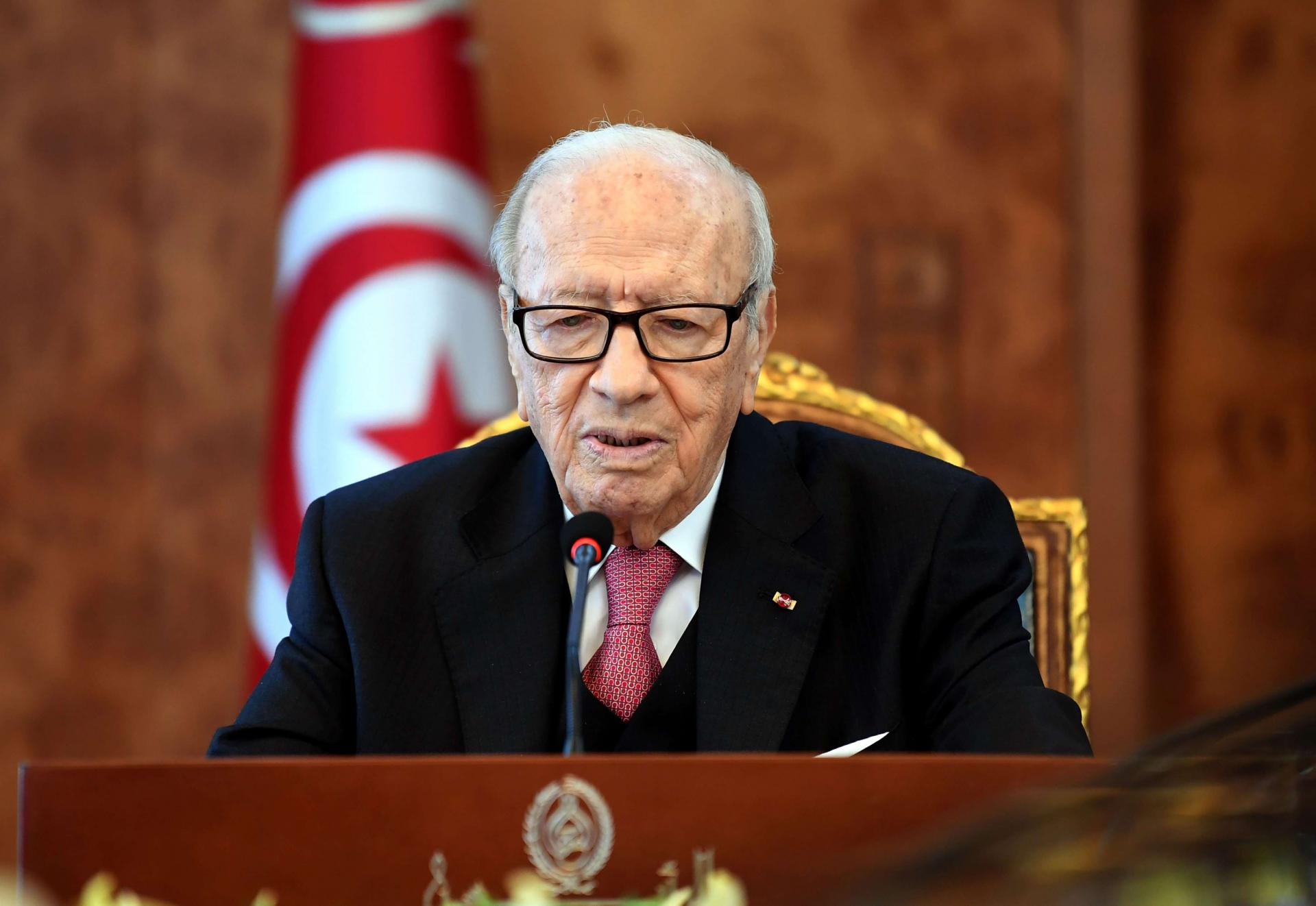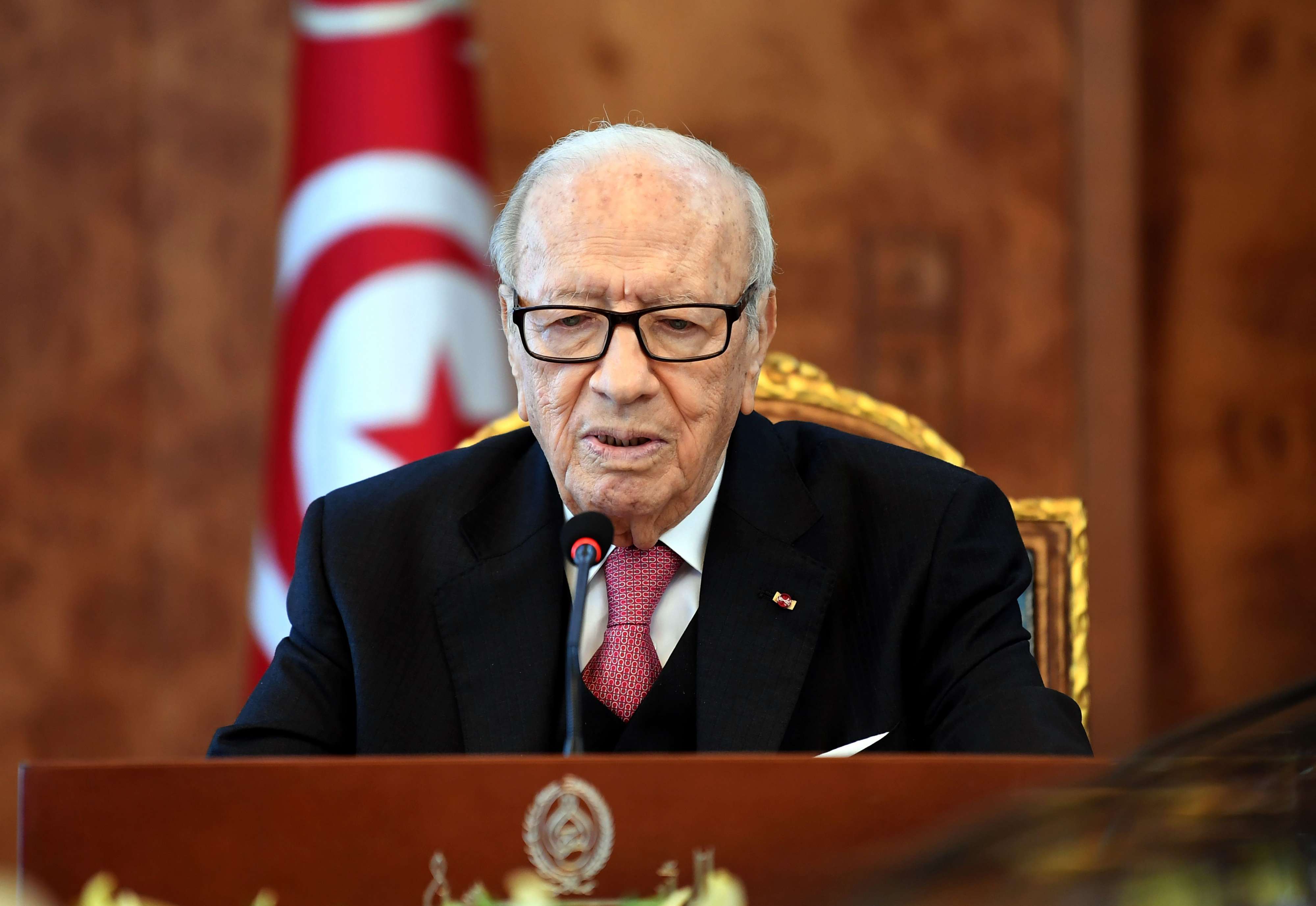Tunisian president decries Islamists' hold on government
TUNIS - The private office of Tunisian President Beji Caid Essebsi at the Carthage Palace in the northern suburbs of Tunis is elegantly decorated and tastefully furnished.
Next to the door and facing the president’s desk, a wooden cabinet serves as a pedestal for a bust of the late Tunisian President Habib Bourguiba under whom Caid Essebsi had served in the 1980s as minister of foreign affairs. The statue reminds visitors that the current Tunisian president is proud to be the trustworthy custodian of Bourguiba’s legacy.
Caid Essebsi’s commitment to that legacy is perhaps more pertinent today than at any other period of Tunisia’s modern history because the country needs inspiration from the vision and leadership of its founding father to ensure the success of its democratic transition and consolidate its progressive and open model of society.
As we sat down to talk for an exclusive interview he granted to The Arab Weekly and Al Arab, the 92-year-old president shifted his focus with ease between domestic politics and regional and international issues.
In his answers, he wanted to be reassuring that all Tunisians are welcoming of the Arab summit, set for March in Tunis. He said he was confident the summit would “take place in the best of circumstances” and expressed the hope the meeting would help “unify Arab ranks.”
Regarding the readmission of Syria in the Arab fold, Caid Essebsi said Tunisia would “stand with the Arab consensus” and “adopt the resolutions endorsed by the Arab League.”
However, the Tunisian president bemoaned the lack of an “Arab project” amid regional and global attempts at shaping events in the region.
He called Tunisia’s relationship with next door Libya “vital.” He said Tunisia, which has spared no effort along with other Arab neighbours to help resolve the crisis in the oil-rich Maghreb country, wishes “for the return of the state in Libya,” although the search for a solution there will have to be “a Libyan-Libyan affair, without any external interference,” Caid Essebsi said.
He was frank in addressing issues related to Tunisia’s shifting political alliances less than a year before legislative and presidential elections. He described the government of his previous ally-turned-rival Prime Minister Youssef Chahed as “Ennahda’s government,” decrying its dependence on the support of the Islamist party. “If Ennahda withdrew its support, the government would fall,” he said.
Caid Essebsi said he saw a covert deal between Chahed and Ennahda President Rached Ghannouchi. “Ennahda understood his [Chahed’s] ambition and dealt with him intelligently. It pushed him to form a new party that would be its partner in power after the 2019 elections. Rached Ghannouchi will secretly back Chahed’s candidacy for the office of President of the Republic. This is no longer a secret for anyone in Tunisia,” Caid Essebsi said.
The head of government’s spokesman, Iyad Dahmani, denied the existence of such an arrangement. Referring to the previous “entente accord” struck between Caid Essebsi and Ghannouchi Paris in 2013, he said: “That scenario will not repeat itself because Chahed does not strike deals in secrecy”.
Chahed recently established a new political party, Tahiya Tounes, with the support of other former Nidaa Tounes members. Competing with Caid Essebsi for Tunisia’s modernist mantle, the announcement of the new party was made in Bourguiba’s birthplace of Monastir.
Regarding allegations linking the Islamist party to a clandestine organisation allegedly involved in illicit and violent activities, including the assassination of two leftist leaders, Caid Essebsi insisted on the need to “ascertain whether Ennahda has a secret arm or not.”
“A country like Tunisia that wants its revolution to be fair must verify if such an apparatus exists or not… We do not accuse without proof,” he said.
Ennahda has denied the accusations.
The veteran Tunisian leader acknowledged, however, that Ennahda has tried to morph into a “normal political party” but deemed its efforts “not sufficient.”
Although he expressed total rejection of the notion of “presidents for life,” Caid Essebsi kept his options open regarding this year’s elections. He said he would consider running for a second term only if the “interest of Tunisia” dictated it.
Between now and elections near the end of the year, tensions are bound to run high in Tunisia. In many regards, the electoral season has already begun. As shown by Caid Essebsi’s remarks in this interview, the president does not seem to be shying away from playing hardball.
Haitham El-Zobaidi is chairman of Al Arab Publishing House. He is also chairman and publisher of The Arab Weekly and Al-Jadeed magazine.
This article was originally published in The Arab Weekly.




